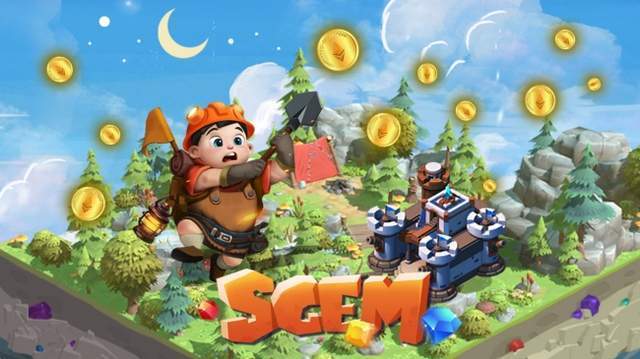Exploring the World of Blockchain Games
Blockchain technology has permeated various industries, revolutionizing traditional systems and introducing innovative concepts. One such domain that has seen significant growth and intrigue is blockchain gaming. Combining the principles of decentralization, immutability, and tokenization, blockchain games offer unique gameplay experiences and economic models. Let's delve into what you can expect from blockchain games and the types of games you can play within this burgeoning sector.
Blockchain games are built on decentralized networks, utilizing smart contracts and digital assets to provide players with ownership and control over ingame items. Unlike traditional games where items and progress are stored on centralized servers, blockchain games leverage the security and transparency of blockchain technology.
One of the defining features of blockchain games is the concept of true ownership. Players have actual ownership of their ingame assets, represented as nonfungible tokens (NFTs) or fungible tokens on the blockchain. This ownership enables players to buy, sell, or trade their virtual assets both within and outside the game ecosystem.
Blockchain games encompass a diverse range of genres and gameplay mechanics. Here are some popular types of blockchain games:
1. Collectible and Trading Card Games (TCGs)
These games enable players to collect, trade, and battle with digital collectible cards. Each card is represented as an NFT, ensuring scarcity and uniqueness. Players can build decks, participate in tournaments, and trade cards on decentralized marketplaces.
2. Decentralized Autonomous Organizations (DAOs)
DAO games involve community governance and decisionmaking through decentralized autonomous organizations. Players can vote on ingame proposals, allocate resources, and collectively shape the direction of the game world.
3. Virtual Worlds and Metaverses
Virtual worlds built on blockchain technology allow players to own land, create digital assets, and interact with other players in a decentralized environment. These metaverses offer opportunities for socializing, trading, and engaging in various activities.
4. BlockchainBased RolePlaying Games (RPGs)
RPGs on the blockchain combine traditional roleplaying elements with blockchainbased asset ownership. Players can embark on quests, level up characters, and acquire rare items that hold real value within the game economy.
5. Strategy and Simulation Games
Strategy games leverage blockchain technology to introduce elements of scarcity, ownership, and playerdriven economies. Players can build and manage virtual assets, engage in strategic battles, and compete for rewards.
Blockchain games offer several advantages over traditional gaming experiences:
- True Ownership: Players have real ownership of ingame assets, which can be traded or sold independently of the game.
- Transparency: Transactions and asset ownership are recorded on the blockchain, ensuring transparency and preventing fraud.
- Interoperability: Assets from one blockchain game can often be used or transferred to another compatible game, fostering interoperability and crossgame experiences.
- Player Empowerment: Decentralized governance mechanisms give players a voice in the development and direction of the game world.
- Monetization Opportunities: Players can earn cryptocurrency or other rewards by participating in gameplay, contributing content, or trading virtual assets.

Blockchain games represent a paradigm shift in the gaming industry, offering players unprecedented control, ownership, and opportunities for engagement. Whether you're interested in collecting digital assets, participating in decentralized governance, or exploring virtual worlds, there's a blockchain game suited to your preferences. As the technology continues to evolve, expect to see even more innovative and immersive experiences emerge within the realm of blockchain gaming.
标签: 区块链游戏可以玩什么手游 区块链游戏能玩吗 区块链游戏可以玩什么游戏







